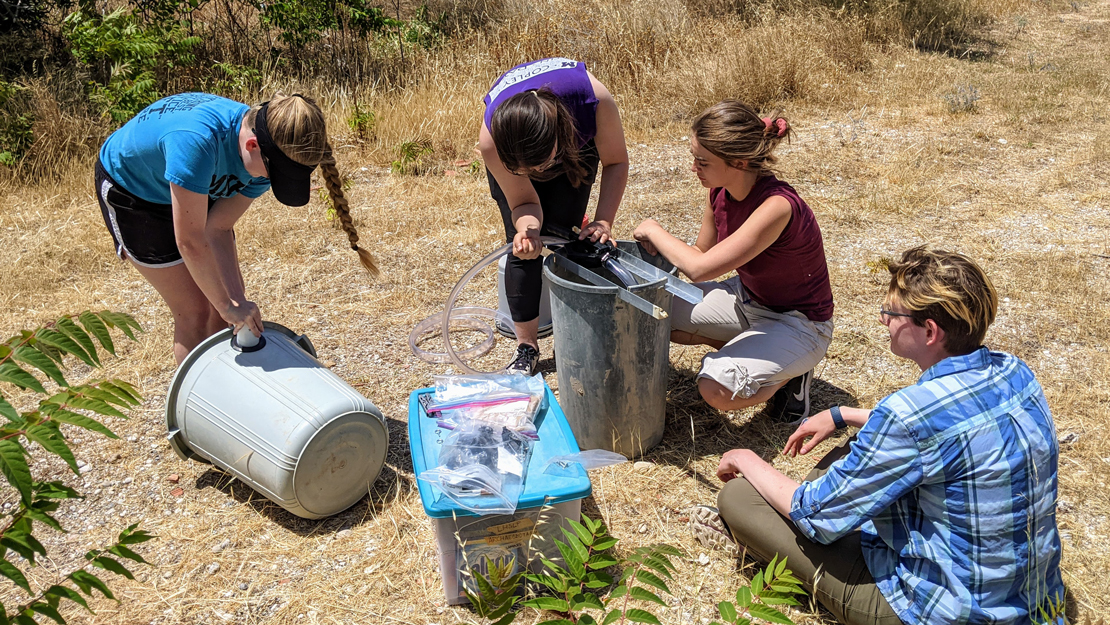Intensive Summer Course Series
Application Deadline: April 30, 2024
Apply Here
The Center for the Analysis of Archaeological Materials offers a series of intensive courses in the field of archaeological science. They are aimed at advanced undergraduates, graduate students, scholars, and professionals with a background in archaeology or in a relevant field. All courses are taught by CAAM Teaching Specialists and Museum staff and are offered on rotation every 1-2 years with the final dates confirmed in the Spring of each year.
2024 Courses
- Problems and Methods in Zooarchaeology for the Andes – June 12-14, 2024 with Dr. Katherine Moore
- This 3-day course is designed for students either planning a field program or approaching an existing zooarchaeology collection from the Andes. The basic research questions in zooarchaeology will be related to field practices of sampling, recovery, and conservation. Students will practice the major tasks of sorting, identification, and data recording using hands-on material. Resources will include both the collections of the CAAM Zooarchaeology Laboratory and the Academy of Natural Science of Philadelphia. Since traditional metric analysis of camelid long bones as well as GMM is so important in this region, standards, models, and limitations will be covered. Surface modification and histology will be used to reconstruct taphonomic pathways and life history variables. Sampling and interpretation of molecular zooarchaeology data (aDNA and isotopes) will be discussed and sampling protocols demonstrated.
- Archaeogeophysics – August 12-16, 2024 with Dr. Jason Herrmann
- The CAAM Intensive Course in Archaeogeophysics is a five-day workshop where participants will receive hands-on experience in collecting, processing and interpreting near-surface geophysical data on archaeological sites. The workshop will take place at Bartram’s Garden where instruction will be divided between survey in the field and lectures and exercises in the classroom. Work in the classroom will cover the theory of geophysical sensors commonly used in archaeological investigations, physical properties of common archaeological and paleoenvironmental targets, field methods for data collection, data processing and interpretation. We will collect data on historic sites in the park using a magnetic gradiometer, an earth resistance meter, and using electromagnetic induction. A significant proportion of the course will be computer-based as participants work with the data that we collect, focusing on the fundamentals of data processing, data fusion, and interpretation. Some familiarity with GIS is recommended.
- Archaeometallurgy Workshop – August 5-9, 2024 with Vanessa Workman
- This 5-day workshop in Archaeometallurgy serves as an intensive introduction to metal technologies of the past and to the analytical techniques employed to investigate them. A portion of the course will move through lectures on past production, modern excavation, and scientific examination of ancient metals, as well as related non-metal materials (mineral ores, slag, and ceramics used high-temperature pyrotechnologies). For the majority of the workshop, participants will engage in hands-on sessions to learn the basics of microstructural and chemical analyses of metals using reflected light microscopy, scanning electron microscopy, and various elemental analyzers. Participants will learn standard sample preparation methods for metallographic samples (embedding, polishing, etching) and have the opportunity to investigate materials held in the exceptional Penn Museum-CAAM metallographic sample collection. Those who wish to work on project materials are encouraged to bring a small set of their own embedded (mounted & ground) samples. Prior knowledge in material science or inorganic chemistry, though beneficial, is not required.
Information
Location: Courses will be held in the Penn Museum’s Center for the Analysis of Archaeological Materials (CAAM) located on the campus of the University of Pennsylvania, Philadelphia PA.
Course fees: $900 for 5-day course, $600 for 3-day course. Fees include all course materials and access to laboratory facilities. Travel to and from Philadelphia, accommodation, meals and course credits are not covered by the course fees.
A minimum of 4 participants is required for courses to be offered.
Past Intensive Courses
| Year | Course Name | Instructor |
|---|---|---|
| 2023 | Andean Textile Studies | Dr. Anne Tiballi |
| 2023 | Petrography of Cultural Materials | Dr. Marie-Claude Boileau |
| 2022 | Field Archaeobotany | Dr. Chantel White |
| 2022 | Archaeogeophysics | Dr. Jason Herrmann |
| 2022 | Petrography of Cultural Materials | Dr. Marie-Claude Boileau |
| 2020 | Field Archaeobotany | Dr. Chantel White |
| 2020 | Methods for Zooarchaeology in Andean South America | Dr. Katherine Moore |
| 2020 | Petrography of Cultural Materials | Dr. Marie-Claude Boileau |
| 2020 | Archaeogeophysics | Dr. Jason Herrmann |
| 2019 | Problems and Methods in Zooarchaeology | Dr. Katherine M Moore |
| 2019 | Triage Care of Artifacts On Site | Team taught by Penn Museum Conservators |
| 2019 | Mining and Metallurgy in Archaeology | Dr. Moritz Jansen |
| 2018 | Petrography of Cultural Materials | Dr. Marie-Claude Boileau |
| 2018 | Andean Textile Studies | Dr. Anne Tiballi |
| 2017 | Field Archaeobotany | Dr. Chantel White |

